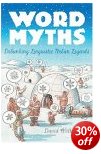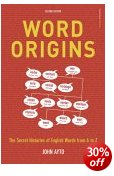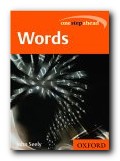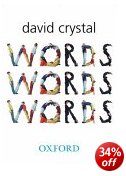debunking linguistic urban legends and false etymologies
You know that the term posh comes from an acronym formed from the expression ‘port out, starboard home’? And that ‘the whole nine yards’ comes from the amount of fabric needed to make a kilt? Well you’re wrong: they don’t. This is a study of word myths and linguistic urban legends – why they arise, what they mean, who tells them, why they are told, and what they tell us about ourselves in terms of language and common usage. What David Wilton does is subject a series of ‘explanations’ for well known expressions and sayings to close historical scruitiny.
 As a result he demonstrates that ‘Ring-a-ring o’ roses’ is not about the plague, and that Eskimos – sorry! Inuit – do not have 500 words for snow, where we have only one. The truth is that we have lots, and so do they, but they make compound single words, where we use expressions such as pack ice. The outcome of his scholarship corresponds roughly with that of Michael Quinion, whose Port Out, Starboard Home explores similar territory. The main lesson to be learned seems to be that the more attractive and anecdotally interesting the explanation, the less likely it is to be true.
As a result he demonstrates that ‘Ring-a-ring o’ roses’ is not about the plague, and that Eskimos – sorry! Inuit – do not have 500 words for snow, where we have only one. The truth is that we have lots, and so do they, but they make compound single words, where we use expressions such as pack ice. The outcome of his scholarship corresponds roughly with that of Michael Quinion, whose Port Out, Starboard Home explores similar territory. The main lesson to be learned seems to be that the more attractive and anecdotally interesting the explanation, the less likely it is to be true.
Disproving legends does sometimes become a little repetitively negative, but along the way there’s a lot of interesting socio-linguistics, language etymology, comparative linguistics, and cultural history. He even includes an instructive note on how to use dictionaries for language searches.
There are also some interesting detours into the realms of acronyms, back-formations, bogus history, ‘Elizabethan emails’, and many other justifications for completely false explanations of the origins of words and expressions.
He gives his opponents the benefit of the doubt from time to time, but takes quite a stringent line throughout:
Another factor in the popularity of the [pre 20th century] AWOL tale is the fact that the Civil War is a topic much loved by hobbyists and amateur historians. Any topic that excites the passions of hobbyists and fans tends to generate false etymologies.
He is certainly very well informed, and evidence for his claims is meticulously sourced. Disputes over the origins of the word jazz occupy several pages. And he deals as well with acronyms, backronyms, and eponyms – ascribing abbreviations, initial letters, or people’s names as the putative origin of a word, as well as the false etymology and political correctness in terms such as picnic, Indian, and gay.
You might think that so much effort in debunking what are often attractive anecdotes would be a dispiriting reading experience – but somehow it isn’t. In fact the opposite is true: it enhances one’s respect for good scholarship and the love of language.
© Roy Johnson 2008
David Wilton, Word Myths, Oxford: Oxford University Press, 2008, pp.240, ISBN: 0195375572
More on dictionaries
More on language
More on literary studies
More on grammar


